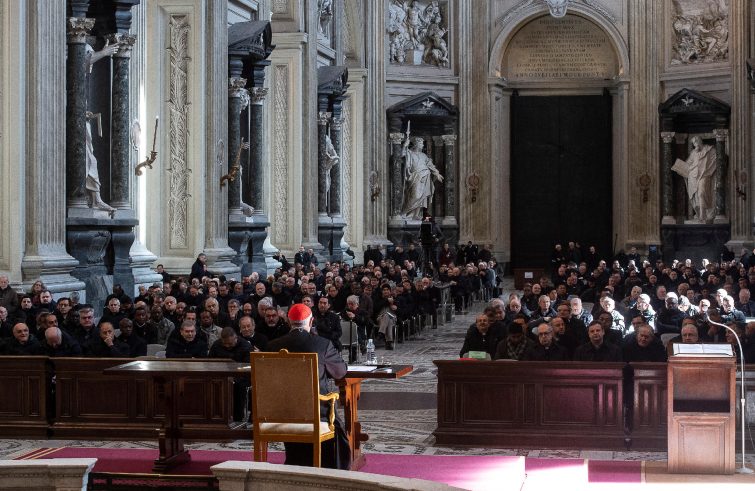
“Today, it seems there is a general climate – not only among us – of widespread mediocrity, which does not allow us to make easy judgements”. Pope Francis wrote this in his prepared address for the meeting with the Roman clergy in the Basilica of St John Lateran, read out by Cardinal Vicar Angelo de Donatis. “Much bitterness in the life of a priest comes from the Pastors’ omissions”, the Pontiff argued: “We all experience our own limitations and shortcomings. We deal with situations where we realise that we are not adequately prepared… But looking up, at the services and ministries with greater visibility, the shortcomings become more evident and acute; and it is also logical that in this relationship much is at stake, for better or for worse. “Here, I am not talking about the often inevitable differences on managerial problems or pastoral styles”, the Pope pointed out: “This is acceptable and is part of ordinary life. The real, disappointing problem is not the differences – maybe not even mistakes: even a bishop can make mistakes as all other creatures!-, but rather two reasons that are very serious and destabilising to priests”. First of all, Pope Francis explained, a sort of “soft authoritarian drift: we do not accept those among us who think differently. For a word, you are placed in the group of those who are against, for a ‘remark’, you are placed in the group of the dissatisfied. Parrhesia is buried under the frenzy of imposing projects. The cult of the initiative gradually replaces the essential – one faith, one baptism, one God and Father of all. The extent to which initiatives are supported risks becoming the measure of communion. But this does not always coincide with the unanimity of opinions. Nor can we expect communion to be only unidirectional: priests must be in communion with the bishop… and the bishops in communion with the priests: it is not a problem of democracy, but of paternity”.
“Caution” and “fairness” are the requirements requested to pastors, as recommended by St Benedict in his Rule: “An Abbot facing an important issue shall consult with the entire Community, including the youngest”, but “the final decision lies solely with the Abbot, who shall decide with caution and fairness”. “Fairness”, the Pope pointed out, “means taking everyone’s opinion into account and protecting the representation of the flock, with no preferences”. “A great temptation for a pastor is to surround himself with ‘his people’, those who are ‘close’ to him; and in doing so, unfortunately, real competence is supplanted by some presumed loyalty, with no more distinction between yes-men and those who give disinterested advice”, the Pontiff remarked: “This causes great suffering to the flock, who often accepts everything without saying a word”. “At this time of widespread uncertainty and fragility, authoritarianism would seem the solution”, the Holy Father pointed out: “This is clear in the political sphere. But real care – as St Benedict suggests – lies in our fairness, not in uniformity”.
